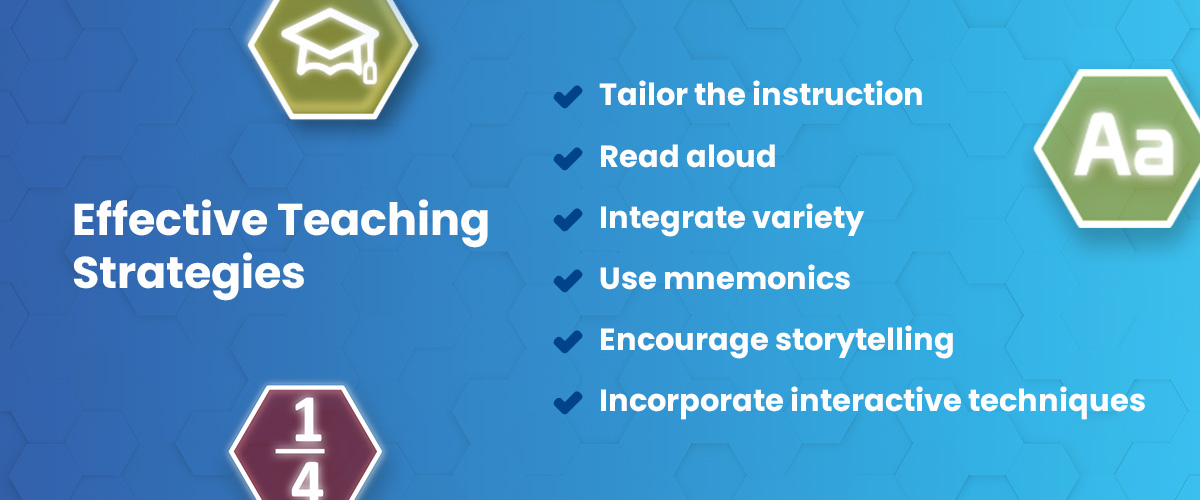When homeschooling your child, you have countless opportunities to bond and actively participate in their education. It’s natural to want to maximize their learning and set them up for success throughout their lives. Understanding their learning style is one of the most effective ways to achieve this.
The Importance of Identifying Learning Styles
Homeschooling parents are free to create their children’s ideal learning environment — tailoring lessons that play to their strengths and empower them to tackle challenges. Every child is unique, and the more you understand how they learn best, the more enriching your homeschooling experience will be.
Once you know your child’s learning style, give them the tools to improve. You know their assets and limitations, so you can deliver information in a way that’s easy for them to process. Learning styles are such an essential aspect of student learning that teachers often incorporate them into lesson plans and curricula to ensure inclusivity.
Understanding the Linguistic Learning Style
A linguistic learner loves the written and spoken word. They have a natural affinity with languages and learn well when allowed to speak or write. These learners share some similarities with auditory learners, but distinct differences exist. Auditory learners have high auditory memory unconfined to the spoken word. Linguistic learners work best with language itself.
Common characteristics of verbal learners include:
- They learn new words quickly, often leading to an extensive vocabulary.
- They have a good memory for the written and spoken word.
- They excel in reading and writing activities and enjoy word games.
- They benefit from discussing concepts or reading material aloud.
- They often have an affinity for learning new languages.
- They can retain the information they just read.
- They intuitively understand how to take good notes.
- They may experience challenges spelling or visualizing information.
- They ask frequent questions and excel in verbal expression.
- They enjoy reading to themselves and others.
- They avoid silence and actively participate in study groups and other collaborative activities.
- They might prefer doing word problems in math instead of equations.
Verbal learning is often the default learning style in virtual and in-person settings, which gives linguistic learners several advantages. They usually do well in lecture-style environments, especially when they have opportunities to take notes. They also have innate comprehension skills, making them good test-takers. Many verbal learners are naturally independent — an excellent trait in a homeschooling environment.
How Do Linguistic Learners Learn Best?
Linguistic learners understand and retain information through language use. They often learn best in environments where they can leverage their natural gifts. Reading and storytelling are excellent educational activities for these students. They prefer to rely on language reasoning over abstract visual information.
Some of the most effective learning activities for linguistic learners include:
- Verbal lessons or lectures
- Independent study assignments
- Story problems in math
- Written projects
- Public presentations
Effective Teaching Strategies

Homeschooling parents actively participate in their children’s education. If your child is a linguistic learner, you can use their unique strengths to help them succeed in their studies. Here are some effective teaching strategies and study tips.
- Tailor the instruction: Provide written or verbal directions, as many linguistic learners often find pictures or diagrams challenging. Your child may enjoy the challenge of age-appropriate technical writing assignments.
- Read aloud: Read books aloud or have your child read them to you. Incorporate new vocabulary words and their definitions.
- Integrate variety: Look for learning materials that use colorful tones, stories and voices. Avoid delivering information in a monotone when explaining lessons or concepts to your child.
- Use mnemonics: Mnemonics are an excellent strategy for memorizing information. A typical example is ROY G. BIV, which children can use to remember the colors of the rainbow — red, orange, yellow, green, blue, indigo and violet.
- Encourage storytelling: Encourage your child to write stories about what they learn. For example, they can combine science and history to tell the story of Isaac Newton.
- Incorporate interactive techniques: Linguistic learners often benefit from discussing or debating concepts with their peers. Set up groups where they can work through topics alongside classmates.
Curriculum Recommendations for Verbal Learners
Linguistic learners have a natural advantage in communicating and absorbing the written and spoken word. Since they excel in reading, writing and listening, you must select a curriculum challenging enough to keep them interested.
Core Subjects
The linguistic learner thrives in environments that focus on lectures and discussions. In many ways, their natural affinity for communication makes core subjects more accessible. Include the following in your child’s core curriculum.
- Language arts: Language arts is a crucial subject for elevating your child’s communication skills, creativity and critical thinking. Look for courses that offer exceptional homeschooling support, video-based lessons, written practice challenges and a wealth of supplemental materials.
- Social studies: Social studies is another fundamental subject in which linguistic learners excel. Their natural affinity for storytelling helps them learn about their home country and worldwide cultures. Allow them to focus on generalized subjects in their early years and become more specialized as they progress.
- Science and math: As these subjects are visual and numerical, many linguistic learners find them more challenging. Look for courses that allow your child to progress at their pace, emphasizing language-based methods in their learning. Video lessons in these subjects are especially valuable for verbal learners. They give your child audible instruction, keeping them engaged and boosting retention.
Elective Courses
Linguistic learners enjoy role-playing, debating and talking through problems. As they often have an affinity for learning languages, electives in world languages are a common choice. These subjects provide an additional challenge while still playing to their strengths.
Drama and public speaking are other excellent choices for verbal learners. These subjects allow them to explore the creative side of language while building confidence in their communication skills. An option like collaborative theater brings together multiple art forms on stage.
Creating a Language-Rich Environment for Verbal Learners
Homeschooling families can include many opportunities to use language and develop children’s natural skills. Here are some ideas for fostering an effective, language-rich environment at home.
- Create word walls: Encourage your child to write new vocabulary words and definitions on a wall near their desk. Keeping these words visible means they are more likely to retain them and use them in upcoming assignments.
- Build a library: A small home library invites your child to find and interact with different types of literature. Incorporate books, learning materials from your homeschooling platform and any publications on topics they enjoy.
- Encourage wordplay: Linguistic learners love the challenge of word games. Keep options available in your child’s learning space, like crossword puzzles, Boggle or Scrabble.
- Monitor progress: Linguistic learners are excellent communicators, so talk to your child about their coursework. Give them regular feedback and encourage them to work through their learning materials. When you create an open dialogue with your child, you can adapt your teaching methods to support their best results.
Support Your Linguistic Learners With Power Homeschool
If your child is a linguistic learner, you’re likely looking for the most effective curriculum to suit their needs. As the official provider of hundreds of Acellus® courses, Power Homeschool allows you to tailor your child’s curriculum to align with their skills and goals. With Acellus®, you can help your child learn at their ideal pace and on your chosen schedule.
Our robust platform empowers parents and enriches each child, providing access to the latest technology and resources to support their educational journey. What are you waiting for? Browse our extensive range of Acellus® courses and find the perfect mix for your linguistic learner today!




This is good. Power homeschool really helps.